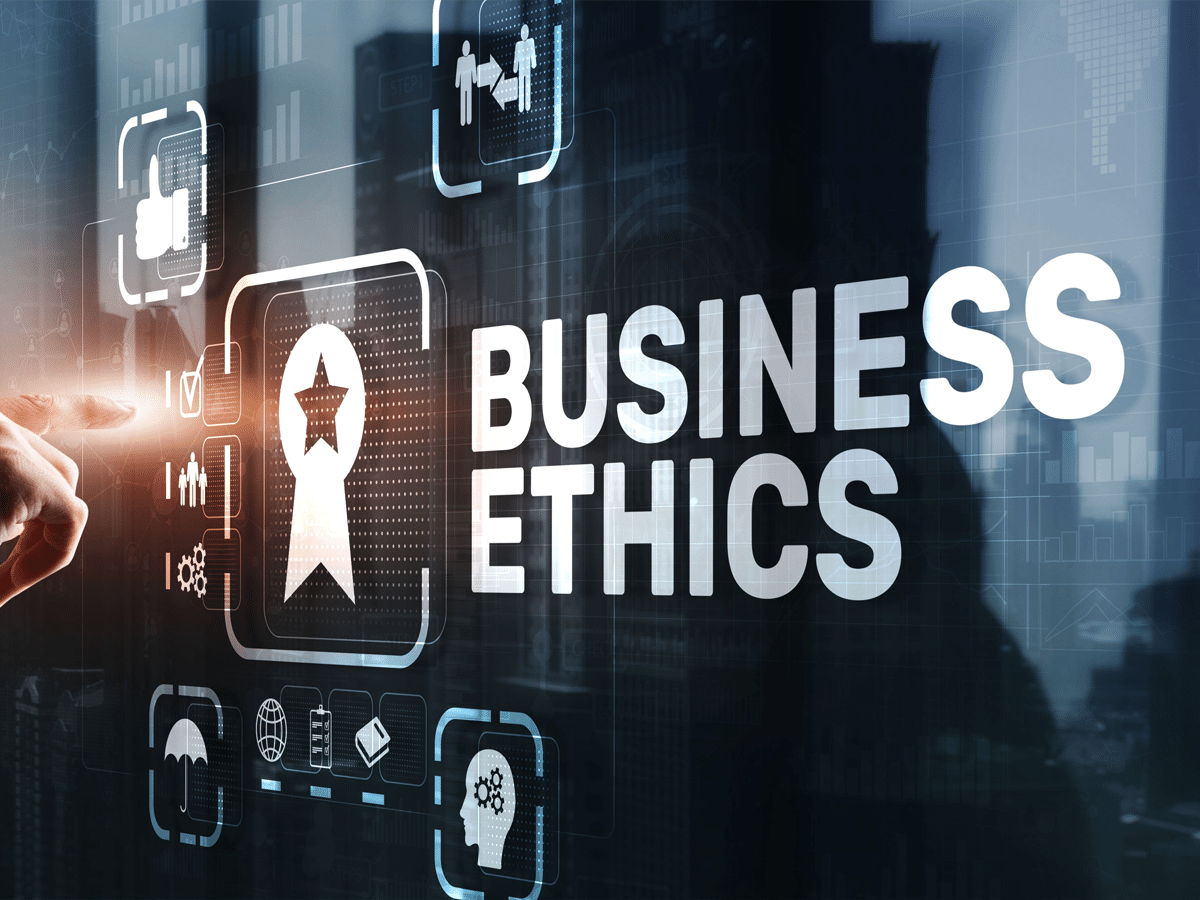Top Business Trends in 2025 Every Manager Should Know
The business world is evolving rapidly, shaped by AI advancements, sustainability demands, workforce shifts, and economic uncertainty. Leaders must adapt to stay competitive. Understanding key trends – ranging from AI integration to workplace well-being – will help businesses navigate challenges and seize new opportunities in the year ahead.

Covered in this article
- The Urgent Need for Sustainable Business
- Adapting to an Unpredictable Business Landscape
- Smarter Use of Artificial Intelligence (AI)
- Focus on Workplace Well-being
- Preparing for a Future-Ready Workforce
- The Evolving Role of Managers in the Age of AI
- Building Business Resilience in a Volatile World
- Preparing for the Future of Business in 2025
- FAQs
1. The Urgent Need for Sustainable Business
The demand for sustainable business practices has never been higher. Consumers, investors, and regulators alike are pushing companies to take environmental responsibility seriously. While brands like Shein and Temu continue to dominate despite their unsustainable models, the rise of the circular economy and ethical consumption highlights a significant shift in consumer behaviour.
A PwC survey found that over 80% of consumers are willing to pay more for sustainability, even in times of financial strain. However, businesses must balance eco-friendly initiatives with cost efficiency, as quality and value remain top purchasing priorities.
Key sustainability trends for 2025 include:
- Eco-friendly operations – Companies will need to reduce carbon footprints, optimise supply chains, and invest in green energy.
- Transparent sustainability reporting – Businesses must demonstrate measurable progress in reducing environmental impact.
- Regulatory compliance – Governments worldwide are tightening environmental laws, making it essential for businesses to align with new standards.
Sustainability is no longer optional; it is a strategic necessity. Companies that fail to act risk not only reputational damage but also regulatory and financial setbacks.
2. Adapting to an Unpredictable Business Landscape
The global business environment is becoming increasingly complex, with rapid changes in regulations, market dynamics, and consumer expectations. Businesses must remain agile to navigate evolving challenges and capitalise on emerging opportunities.
Key considerations for 2025 include:
- Regulatory shifts – Changing industry standards and compliance requirements can impact business operations. Companies must stay informed and adaptable.
- Supply chain resilience – Businesses should diversify suppliers and optimise logistics to mitigate disruptions and improve efficiency.
- Evolving consumer behaviour – Customers are making more value-driven decisions, requiring businesses to align with shifting expectations around quality, service, and innovation.
In an unpredictable market, proactive planning, strong stakeholder relationships, and flexible strategies will help businesses maintain stability and growth.
3. Smarter Use of Artificial Intelligence (AI)
AI is no longer just a buzzword – it is a fundamental driver of business transformation. While 2024 was a year of exploration, 2025 demands execution. Companies must move beyond simply experimenting with AI and instead focus on integrating it strategically.
Key AI trends for 2025 include:
- AI-driven decision-making – Businesses will increasingly use AI for data analysis, forecasting, and customer insights to improve efficiency and competitiveness.
- Upskilling employees for AI collaboration – Rather than replacing human workers, AI will augment their roles. Training employees to work alongside AI will be critical.
- Responsible AI adoption – Ethical considerations are becoming more urgent, with businesses needing clear policies to avoid bias, misinformation, and data privacy concerns.
However, AI should not be seen as a universal solution. Goldman Sachs reports that a single ChatGPT query consumes nearly 10 times more electricity than a Google search, highlighting the sustainability challenges of AI use. Businesses must be strategic about its implementation, ensuring AI solutions add real value rather than being adopted for the sake of innovation.
A useful framework for AI adoption comes from Professor Morten Hansen at the Nordic Business Forum:
- If AI can match human quality → Automate.
- If AI cannot match human quality → Augment.
In 2025, businesses must focus on leveraging AI in ways that enhance efficiency, creativity, and productivity without compromising sustainability or human expertise.
4. Focus on Workplace Well-being
Employee well-being will remain a top business priority in 2025. The global workforce continues to experience high levels of burnout, stress, and dissatisfaction, making it essential for businesses to prioritise mental health, work-life balance, and inclusivity.
Three key areas of focus for workplace well-being include:
- Mental health support – The World Health Organization estimates that anxiety and depression lead to 12 billion lost workdays each year, costing $1 trillion in lost productivity. Businesses must invest in mental health initiatives to retain talent and sustain performance.
- Flexible work arrangements – The International Labour Organization (ILO) reports that remote and hybrid work models improve both productivity and employee satisfaction. Companies that embrace flexibility will have a competitive edge in attracting top talent.
- Diversity, equity, and inclusion (DEI) – While DEI efforts face challenges in certain regions, European companies are doubling down on these initiatives. Businesses that cultivate inclusive environments benefit from increased innovation, adaptability, and employee engagement.
Creating a workplace culture that values well-being is no longer just a moral obligation—it is a business necessity. Organisations that fail to prioritise employee health and happiness risk losing their best talent to more forward-thinking competitors.
5. Preparing for a Future-Ready Workforce
The workforce is undergoing a major transformation, and 2025 will bring new challenges in talent acquisition, retention, and skills development. Businesses must rethink traditional workforce structures and prepare for a future shaped by AI, automation, and demographic shifts.
Key workforce trends include:
- Loss of expertise due to mass retirements – In many of the world’s largest economies, a record number of experienced employees will retire in 2025, leading to a critical skills gap. Businesses must invest in mentorship programmes and knowledge-sharing initiatives to ensure expertise is passed on to younger employees.
- AI’s impact on talent development – As AI takes over routine tasks, junior employees may struggle to gain hands-on experience. Companies must create learning opportunities that combine AI support with real-world skills development.
- Restructuring for agility – Traditional corporate hierarchies are giving way to flatter, more flexible structures that encourage cross-functional collaboration. Businesses must embrace agility to remain competitive.
To navigate these changes, businesses must rethink how they train, develop, and retain employees. Investing in skills development and creating an adaptable workforce will be crucial for long-term success.
6. The Evolving Role of Managers in the Age of AI
Managers are facing increasing pressure to adapt to AI-driven workplaces. The traditional role of a manager is shifting, with AI playing a greater role in decision-making, performance evaluations, and talent management.
Emerging managerial trends in 2025 include:
- AI-assisted management – Research shows that employees increasingly trust AI-driven decision-making over human judgement in areas such as performance reviews and compensation. Businesses must define the right balance between AI and human leadership.
- Retaining high performers in an AI-driven workplace – AI enables low-performing employees to appear more productive, making it harder to distinguish true talent. Companies will need to refine their performance evaluation systems to ensure that high achievers are recognised and retained.
- A shift towards inclusion and belonging – In response to growing workplace diversity, businesses will focus more on creating inclusive environments that foster belonging and engagement, rather than simply meeting diversity quotas.
As AI takes on more administrative tasks, managers must focus on human-centric leadership—coaching, mentorship, and fostering innovation. Businesses that empower managers with the right tools and training will create stronger, more adaptive teams.
7. Building Business Resilience in a Volatile World
The unpredictability of global events – from economic downturns to geopolitical conflicts – makes resilience a top business priority for 2025. Companies that fail to prepare for disruptions risk falling behind.
Ways businesses can strengthen resilience:
- Diversifying supply chains – Companies must reduce reliance on single suppliers or regions prone to instability.
- Adopting flexible business models – Organisations must be ready to pivot quickly in response to changing market conditions.
- Enhancing cybersecurity: As businesses increasingly rely on AI and digital infrastructure, they must invest in robust security measures to protect against cyber threats.
Resilience is not just about surviving disruptions – it’s about thriving despite them. Businesses that build adaptability into their core strategies will be better positioned for long-term success.
Preparing for the Future of Business in 2025
As we enter 2025, the business world is evolving faster than ever. Sustainability, AI integration, workforce transformation, and economic uncertainty are reshaping industries worldwide. Companies that embrace these changes with strategic planning, agility, and innovation will thrive.
The Advanced Diploma in Business Management provides the essential knowledge and skills needed to navigate these trends effectively. Whether you’re an aspiring leader or an experienced manager, this qualification can help you stay ahead of industry shifts and drive success in an increasingly complex business environment.
Are you ready to future-proof your career? Explore MANCOSA’s online learning programmes today and gain the expertise needed to lead in 2025 and beyond.
FAQs
1. Why is sustainability so important for businesses in 2025?
Sustainability is now a competitive advantage. Consumers, investors, and regulators are demanding eco-friendly practices, and businesses that fail to adapt risk losing market share and facing regulatory penalties.
2. How can businesses use AI without over-relying on it?
Companies should focus on AI augmentation rather than full automation. AI should enhance human productivity rather than replace essential skills and decision-making capabilities.
3. What is the biggest workforce challenge in 2025?
The biggest challenge is managing expertise loss due to mass retirements while ensuring junior employees gain meaningful experience in an AI-driven workplace.
4. How will the role of managers change in 2025?
Managers will rely more on AI for administrative tasks and data analysis but will need to strengthen their human leadership skills, such as coaching, mentorship, and fostering inclusion.
5. How can businesses prepare for economic and political uncertainty?
Businesses should invest in supply chain diversification, adopt flexible operational models, and strengthen financial planning to mitigate risks from economic downturns and geopolitical instability.
6. What skills will be most valuable for business leaders in 2025?
Strategic thinking, adaptability, AI literacy, sustainability expertise, and strong leadership abilities will be crucial for business success.
7. How can companies improve employee well-being in 2025?
Businesses should prioritise mental health support, flexible working arrangements, and inclusive workplace cultures to enhance productivity and job satisfaction.
8. What industries will be most affected by AI advancements?
Due to AI automation and data-driven decision-making, industries such as finance, healthcare, manufacturing, and customer service will undergo the most transformation.
9. How should businesses approach DEI efforts in 2025?
Rather than focusing only on representation, companies should create environments where all employees feel valued and included, leading to organic diversity improvements.
10. Why should I study for an advanced diploma in business management?
This qualification provides essential skills in leadership, strategy, and operations, preparing professionals to adapt to evolving business challenges and seize new opportunities.





